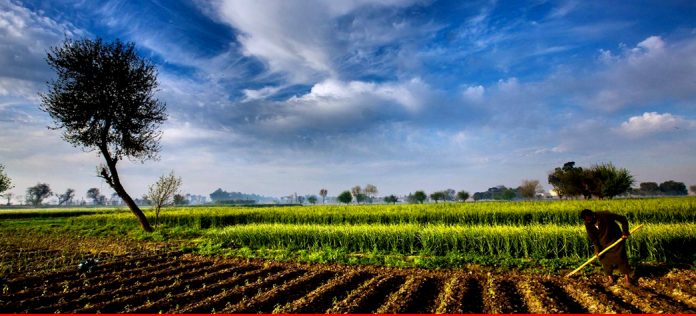A senior official of the Ministry of National Food Security and Research told The Express Tribune that the government had formed a task force for the agriculture sector comprising Finance Minister Asad Umar, Adviser on Commerce, Textile and Industry Abdul Razak Dawood and Minister for Foreign Affairs Shah Mahmood Qureshi.
Another task force has also been constituted to help improve the livestock sector and undertake necessary reforms. The minister for national food security will work on the livestock sector, reports The Express Tribune.
During the previous Pakistan Muslim League-Nawaz (PML-N) government’s tenure, the focus was mainly on big textile tycoons while farmers were on the mercy of these businessmen.
In 2015-16, the agriculture sector posted a negative growth of 0.19% against growth projection of 3.9%, which indicated the lack of focus on the farm sector.
The previous government also allowed cotton import from India at zero duty, benefitting Indian farmers and local textile millers whereas the farmers suffered.
A committee, constituted by the cabinet during the PML-N tenure, pointed to poor management on the part of different governments over the past two and a half decade. During that period, cotton harvests also dropped significantly.
A report presented to the PML-N cabinet by a committee revealed that cotton production had faced virtual stagnation since 1991-92 and fluctuated in a range of 10 to 12 million bales annually.
The output fell to 9.9 million bales in 2015-16 compared to average consumption of 15 million bales, making Pakistan a net cotton importer.
The committee listed different causes for the stagnation in cotton harvest, which included the use of old first generation rather than fourth generation Bt technology, absence of better quality seeds, lack of solution to the cotton leaf curl virus, low processing quality at ginning factories and high contamination levels in the produce.
These reasons brought down profits for cotton farmers and slashed by 20% the area planted with the crop from 2004 to 2016. Before preparing the report, committee members held a series of consultative sessions with representatives of both the textile and food security divisions, representatives of Sindh and Punjab provinces, academia and industry associations.
The committee recommended that cotton production target should be set at 25 million bales by 2025, planted area be increased 45% from 2.4 to 3.5 million hectares and crop yield be taken to 1,200 kg per hectare. Livestock was another area which was not given attention by the PML-N government that reduced duties on milk powder for milk producing companies. This sector could have brought some earnings for the farmers, but the focus was on big tycoons neglecting the small farmers having livestock.

























Let’s see whether PTI can bring any improvement in the agricultural sector or not.